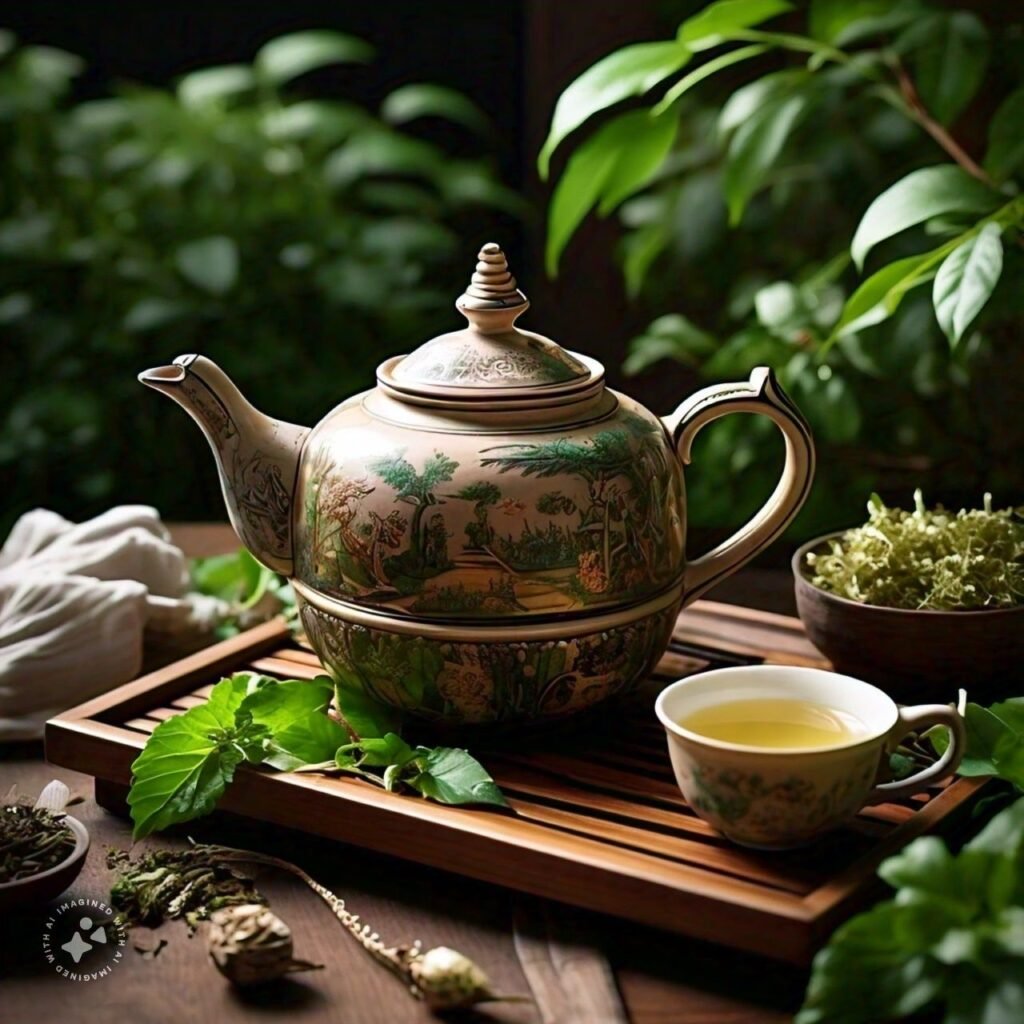Brief discussion about tea:
The most common beverage that is consumed by two-third of the population of the world is tea. Tea that is available in different types are consumed by people located in different areas of the world. The most common source for tea is obtained by a leaf called Camellia sinensis. Although different types of teas are available but based on the harvesting techniques of tea leaf, like green tea that is non- fermented, black tea that is fermented and oolong that is semi fermented.

The chemical composition of all these types of tea is different and depending on the fermentation and drying process.
Health Benefits of Tea:
According to a survey, thousands of countries from all over the world drink tea for good health and wellness. Drinking good herbal tea shows many beneficial effects on health, like it may boost the immune system and prepare the body to fight against inflammation and many types of heart diseases and cancer.

Benefits of some popular teas around the world:
- White tea benefits:
White tea is obtained from a plant called Camellia sinensis and their main origin is basically from India and China. White tea is the least processed type of tea and has a high antioxidants property, so it has the ability to fight against many types of cancer.
Another benefit of white tea is that it gives strength to teeth, fight with plaque because it has high contents of tannins, calcium and fluoride.
The amount of caffeine is very low in white tea and it will be a good choice for low caffeine drinkers.
- Herbal tea benefits:
Tisanas is another name of herbal tea that is somehow similar to white tea. Herbal tea is basically a blend of many beneficial herbs, fruits, spices and many plants. Like other teas, herbal tea does not have caffeine.

There are so many types of herbal teas that exist all around the world with many beneficial effects. Some are listed here:
- Chamomile tea: this tea helps to improve sleep and relaxation time. Chamomile tea reduces muscular pain and stress and also helps in reducing menstrual pain and gives strength.
- Rooibos: it improves the overall blood circulation throughout the body. It maintains the blood pressure and cholesterol level by lowering bad cholesterol level and boosts good cholesterol level into the body. Rooibos also have the ability to give strength to hairs and keep skin healthy and prevent ageing.
- Peppermint: this type of tea contains a huge amount of menthol, which helps the stomach to do their work properly and prevent the body from severe constipation. Peppermint also helps the body relieve tension, migraine and severe headache.
- Ginger: it helps the body relieve from the severe joint pain that is caused by osteoarthritis. Ginger also helps the body to get relief from indigestion problems.
Hibiscus: Hibiscus tea, made from the flowers of the Hibiscus sabdariffa plant, offers numerous health benefits:
1. High in Antioxidants: Rich in vitamins and minerals, hibiscus tea has antioxidant properties that help protect the body against free radicals.
2. Lowers Blood Pressure: Regular consumption of hibiscus tea has been shown to help reduce blood pressure in people with mild hypertension.
3.Weight Loss: Hibiscus tea may aid in weight loss by inhibiting the production of amylase, an enzyme that breaks down carbohydrates.
4. Anti-Inflammatory: The tea has anti-inflammatory properties, which may help alleviate symptoms of arthritis and other inflammatory conditions.
5. Menstrual Relief: Hibiscus tea has been traditionally used to ease menstrual cramps, bloating, and other symptoms associated with PMS.
6. Digestive Health: The tea may help soothe digestive issues like constipation, diarrhea, and irritable bowel syndrome (IBS).
7. Antibacterial Properties: Hibiscus tea has been shown to exhibit antibacterial properties, which may help prevent the growth of harmful bacteria.
8. Vitamin C Rich: Hibiscus tea is a good source of vitamin C, essential for immune function and overall health.
9. Caffeine-Free: Unlike many other teas, hibiscus tea is naturally caffeine-free, making it an excellent choice for those sensitive to caffeine.
10. Delicious and Refreshing: Hibiscus tea has a fruity, slightly tart flavour, making it a delightful addition to a healthy lifestyle.

TEA TIME FOR HEALTHY MIND AND BODY:
Tea time! A moment to pause, relax, and rejuvenate. Tea has been a beloved beverage for centuries, offering numerous benefits for both mind and body. Let’s sip our way to wellness!
Mind:
1. Calming effects: Tea contains L-theanine, an amino acid that promotes relaxation and reduces stress levels.
2. Improved focus: The caffeine in tea can enhance concentration and mental clarity.
3. Mood booster: Tea’s antioxidants and flavonoids may help alleviate symptoms of depression and anxiety.
Body:
1. Antioxidant-rich: Tea’s high antioxidant content helps protect against cell damage and chronic diseases.
2. Heart health: Regular tea consumption may lower cholesterol levels and reduce cardiovascular risk.
3. Immune system support: Tea’s flavonoids may help boost the immune system and fight off infections.
Tea Time Tips:
1. Take a break: Set aside time each day to enjoy a cup of tea and unwind.
2. Experiment with flavors: Try different types of tea, like green, black, white, or herbal, to find your favorite.
3. Add a squeeze of joy: Share tea time with friends or family and make it a social, relaxing experience.
So, let’s raise our cups and toast to a healthy mind and body, one sip at a time!
Tea and health have a long-standing relationship, with numerous benefits for the body and mind. Here are some of the key connections:
Antioxidant powerhouse: Tea is rich in antioxidants, which help protect cells from damage auind reduce the risk of chronic diseases like cancer and heart disease.
Heart health: Regular tea consumption may lower cholesterol levels, blood pressure, and cardiovascular risk.

Cancer prevention: Some teas, like green tea, have been shown to have anti-cancer properties and may reduce the risk of certain types of cancer.
Immune system support: Tea’s flavonoids may help boost the immune system and fight off infections.
Mental well-being: Tea contains L-theanine, an amino acid that promotes relaxation, reduces stress, and improves focus.
Anti-inflammatory: Tea has anti-inflammatory properties, which may help alleviate symptoms of arthritis and other inflammatory conditions.
Digestive health: Certain teas, like peppermint and ginger, may soothe digestive issues like IBS and nausea.
Lower risk of type 2 diabetes: Some studies suggest that regular tea consumption may reduce the risk of developing type 2 diabetes.
Healthy bones: Tea’s flavonoids may help improve bone density, reducing the risk of osteoporosis and fractures.
Dental health: Tea has been shown to inhibit the growth of harmful bacteria in the mouth, reducing the risk of tooth decay and gum disease.
Remember, the specific health benefits may vary depending on the type of tea, brewing methods, and individual circumstances. So, go ahead and sip your way to better health!